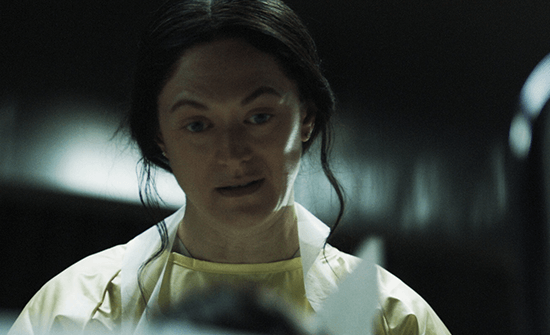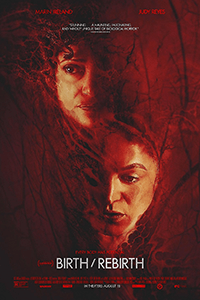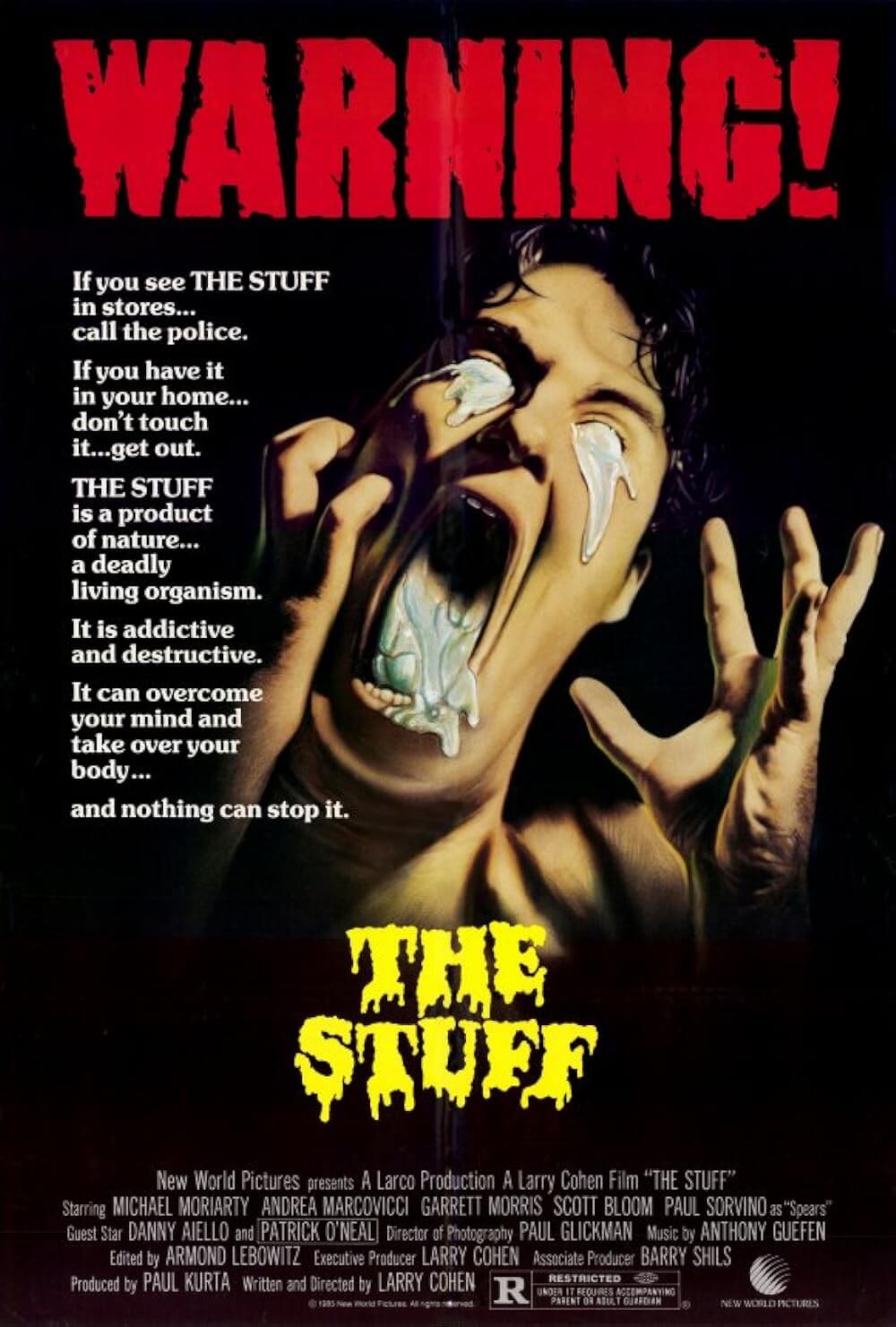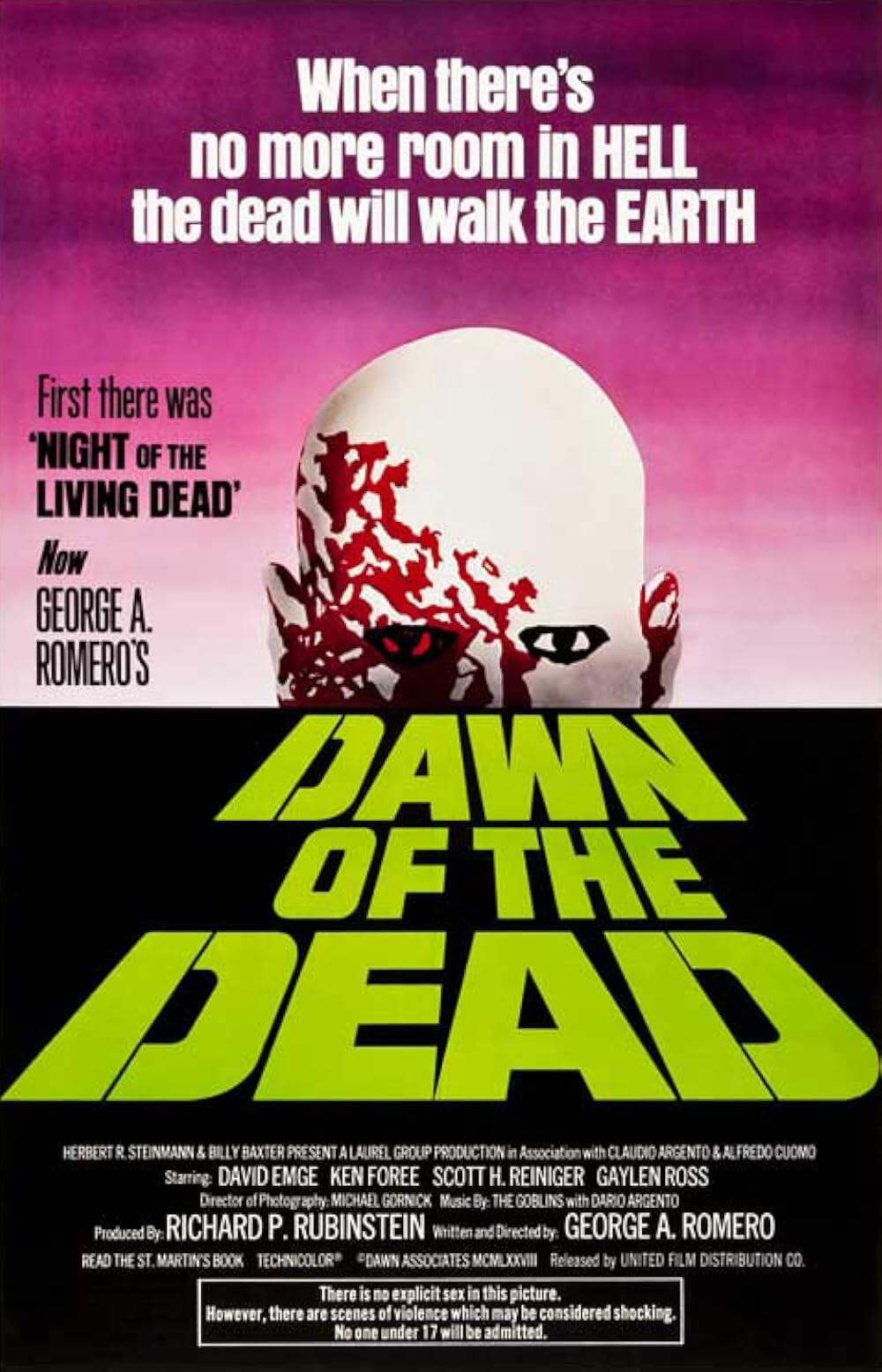Reader's Choice

Birth/Rebirth
By Brian Eggert |
In Birth/Rebirth, Laura Moss’ modern, feminist update of Mary Shelley’s Frankenstein, the resident scientist playing god is a pathologist named Dr. Rose Casper. Brought to life by Marin Ireland in a twitchy, unnerving performance, Rose doesn’t sew body parts together into a stitched-up abomination; rather, her method is specific to women’s bodies, pregnancy, and birth. A commentary on the disturbing limits of motherhood, the film’s origins in classical horror feel reinvigorated by its take on women’s unique ability to create life, and the sense of ownership and emotional attachment that goes along with maternity. However primed the subject matter is for a chilling tale of terror, the film’s characters remain underserviced by Moss and Brendan J. O’Brien’s screenplay, while the treatment of its central monster feels uneven. Still, amid all the many retellings of this classic tale of the Modern Prometheus, Birth/Rebirth is among the most fascinating and full of potential, offering a gory look at the intersection of science and motherhood.
Much of the story follows Celie (Judy Reyes), a sensitive and intuitive hospital midwife tuned in to mothers, evidenced in an early scene where she debates with a delivery doctor whether to cut a woman’s perineum during labor. Instead, Celie tells the mother to think of giving birth as “taking a big shit,” which feels like something only a seen-it-all obstetrics nurse would say. When Celie’s young daughter Lila (A.J. Lister), born via IVF, comes down with bacterial meningitis and dies suddenly, Celie faces not only a personal tragedy but a mystery when Lila’s body goes missing, according to hospital paperwork. Searching for her daughter’s corpse to find closure, Celie encounters Rose, whose morgue processed Lila’s body. What Celie soon learns is that Rose has taken Lila and applied an experimental serum to reanimate her. You might think that Celie would react with horror at this, but the grief-stricken mother quickly joins Rose if it means getting Lila back.
In their respective approaches to motherhood, Rose and Celie are as different as nature and nurture. Rose is unflinching and single-minded in her mission, using discarded placentas and aborted fetuses as raw materials to reanimate the dead. An early scene finds Rose reaching into a C-section incision and yanking out what’s inside with cold, scientific objectivity and efficiency. Her method of obtaining the necessary ingredients is humorously, shockingly calculated: she offers to masturbate a willing barfly in a public restroom, granting no more affection toward her male subject than a nurse taking someone’s blood pressure. His fluids provide her with the means to become pregnant, and sometime later, she obtains embryonic stem cells from her self-aborted pregnancy, which she has already used to revive a pig named Muriel. To maintain her experiments, she keeps a strict log of their caloric intake and maintains regular serum injections, but Rose must learn from Celie that empathy and bedside manner go a long way.
 With much of the action limited to Rose’s small apartment and the hospital where they both work, the cinematography by Chananun Chotrungroj looks alternately lifeless and antiseptic, giving the jaundice-eyed Lila a sinister appearance. Along with Ariel Marx’s eerie music, Moss’ aesthetics feel recessive next to the performances, which grow more nuanced as Rose and Celie’s situation and resources become desperate. Ireland’s shifty-eyed turn wears every emotion on the exterior, rendering her character’s internal processes unmistakable. But for all of Rose’s sinister behavior, justified by her unemotional logic, Celie’s crimes become more potent for her humanity. Reyes serves her character by exuding motherly behaviors and warm interactions with others. Still, Celie’s emotionality is what drives her moral compromises to save her daughter, making her a deliciously complex character.
With much of the action limited to Rose’s small apartment and the hospital where they both work, the cinematography by Chananun Chotrungroj looks alternately lifeless and antiseptic, giving the jaundice-eyed Lila a sinister appearance. Along with Ariel Marx’s eerie music, Moss’ aesthetics feel recessive next to the performances, which grow more nuanced as Rose and Celie’s situation and resources become desperate. Ireland’s shifty-eyed turn wears every emotion on the exterior, rendering her character’s internal processes unmistakable. But for all of Rose’s sinister behavior, justified by her unemotional logic, Celie’s crimes become more potent for her humanity. Reyes serves her character by exuding motherly behaviors and warm interactions with others. Still, Celie’s emotionality is what drives her moral compromises to save her daughter, making her a deliciously complex character.
The screenplay can feel a touch on the nose, such as when Celie flat-out calls Rose a “mad scientist.” But there’s hardly another word given the lengths she goes to maintain her experiment, some of which would give David Cronenberg, the so-called King of Venereal Horror, a run for his money. Beyond the more fantastical horror elements in Birth/Rebirth, an at-home bone marrow aspiration supplies the most squirm-inducing moment, similar to the spinal tap sequence from The Exorcist (1973). The same applies to a procedure to extract amniotic fluid from a pregnant mother (Breeda Wool), who plays a disturbing role in Rose and Celie’s master plan. Yet, the script doesn’t adequately explore Rose’s obsession with regeneration, and the only explanation, derived from a surprisingly un-traumatic backstory confessional, fails to shed light on what makes her so singularly driven.
Moviegoers expecting Moss to go full Shelley and offer an inhuman creature in Birth/Rebirth may feel disappointed, as the reanimated Lila proves inexplicably dull, aside from a single act of violence the film never satisfactorily addresses. Instead, Moss is more interested in comparing mothers to Dr. Frankenstein, locating the horror among women who have become mad scientists, compelled by their belief that “the point of life” is having children. In pursuing that belief, science gives solutions in twisted, uncomfortable, invasive, and often disturbing ways, many shown here. Rose and Celie take matters to one extreme, and then the next, gradually easing the viewer into sensational territory. And while the concept proves thoughtful, the film’s sharply conceptual setup lacks the complete characterizations that would have made it more than just an intelligent premise. Still, it’s easy to admire Birth/Rebirth for what it does, and it’s easy to hope for more from Moss in her next picture.
(Note: This review was originally suggested and posted to Patreon on September 13, 2023.)

Thank You for Supporting Independent Film Criticism
If the work on DFR has added something meaningful to your love of movies, please consider supporting it.
Here are a few ways to show your support: make a one-time donation, join DFR’s Patreon for access to exclusive writing, or show your support in other ways.
Your contribution helps keep this site running independently. However you choose to support the site, please know that it’s appreciated.
Thank you for reading, and for making this work possible.
Brian Eggert | Critic, Founder
Deep Focus Review







